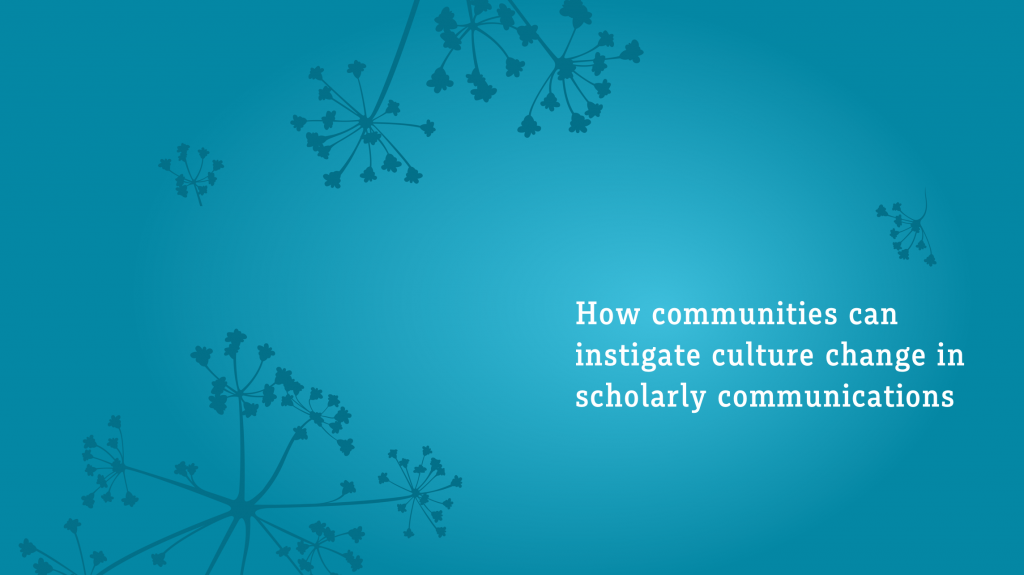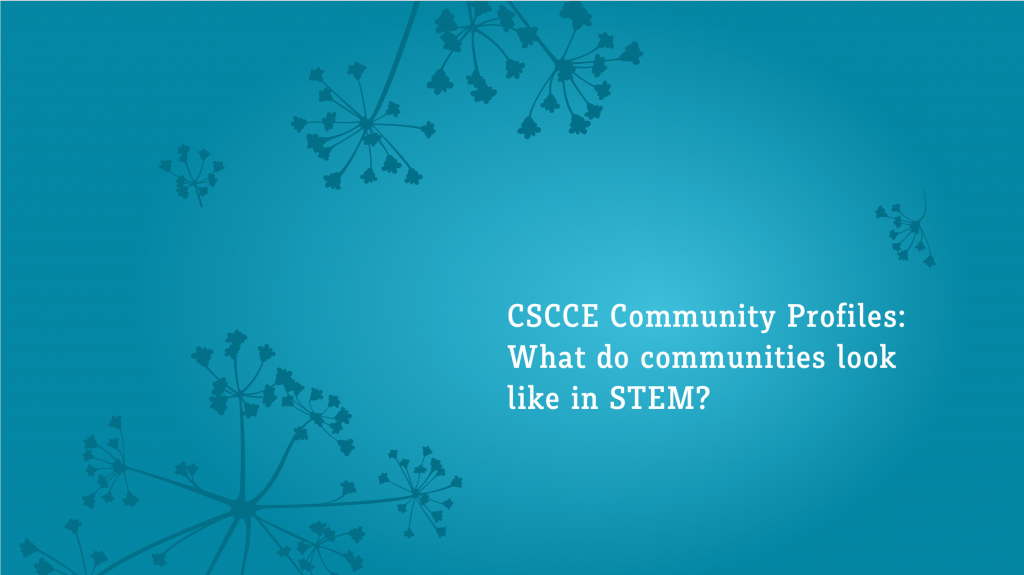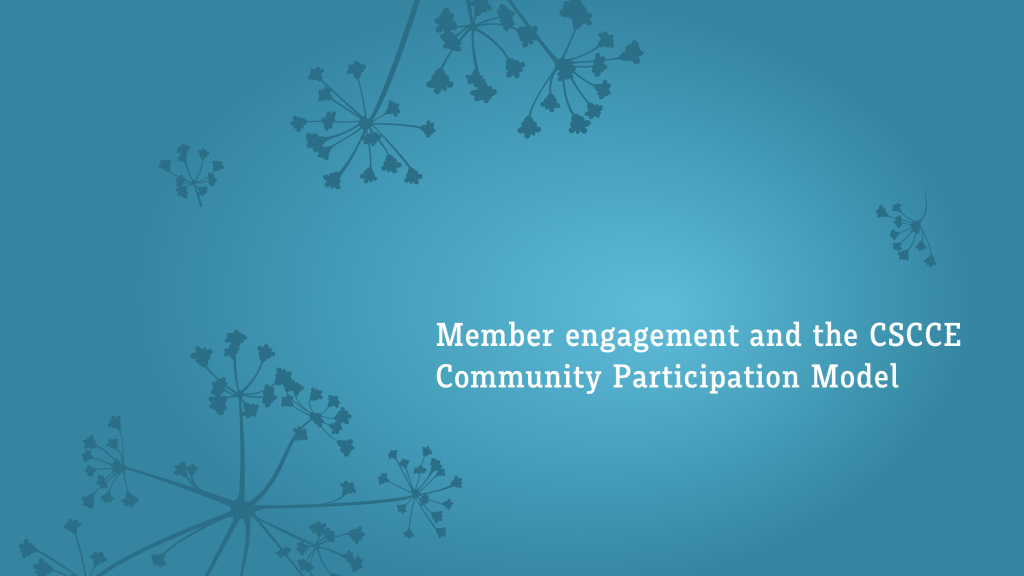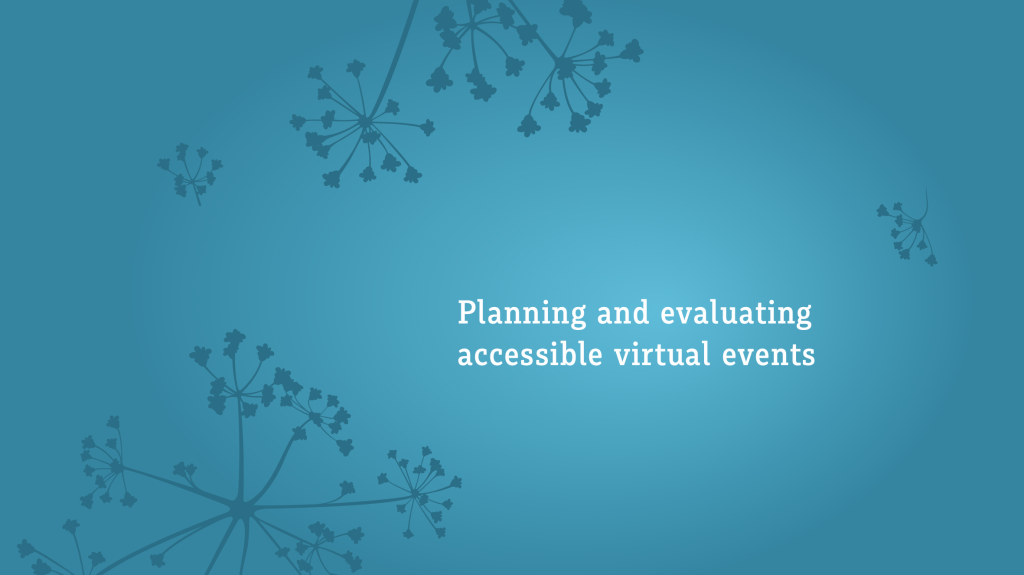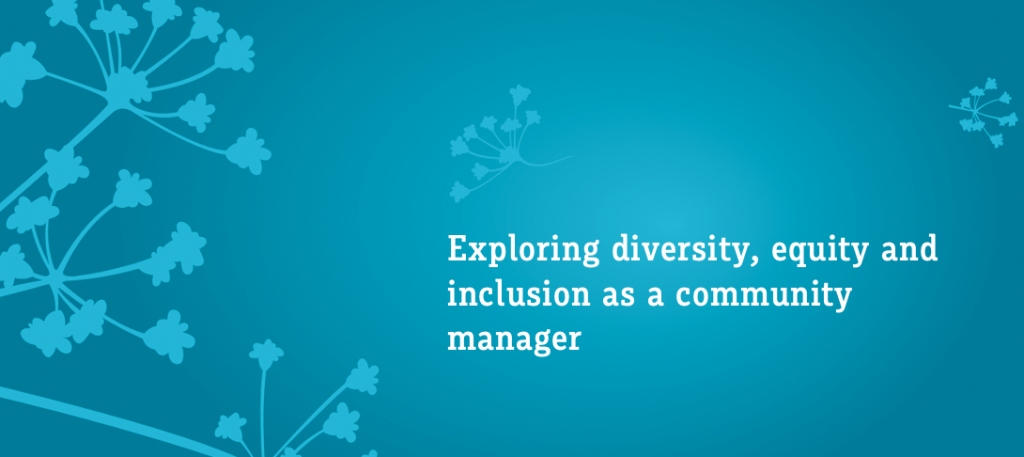October’s community call will take place on Wednesday, 21 October at 6pm UTC (2pm US Eastern Time) and will focus on the importance of convening and connecting different community stakeholders to bring about culture change in the ways we do and share science. We’ll hear from three community managers working in the field of scholarly communications, each with unique stories to share.
It’s also our community of practice’s first birthday, and we’re celebrating by giving away stickers to members of our community of practice. Let us know if you’d like some (info@www.cscce.org), and we’ll get them in the mail to you.
